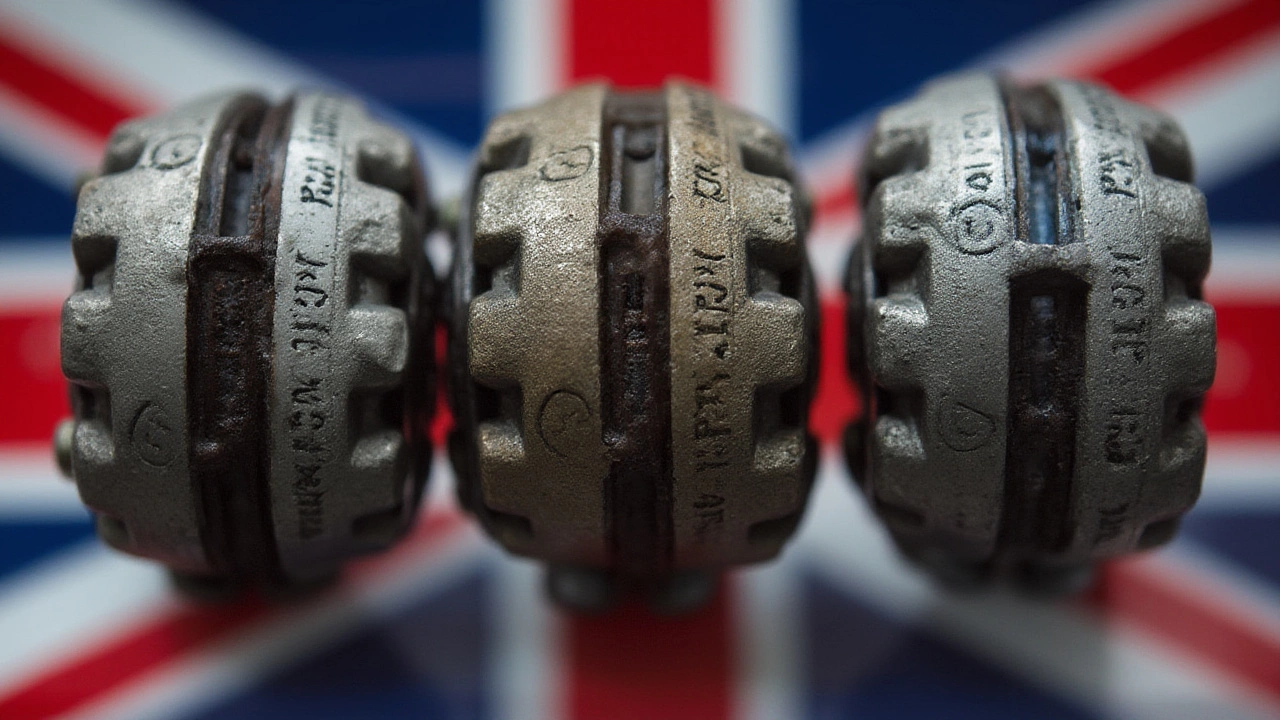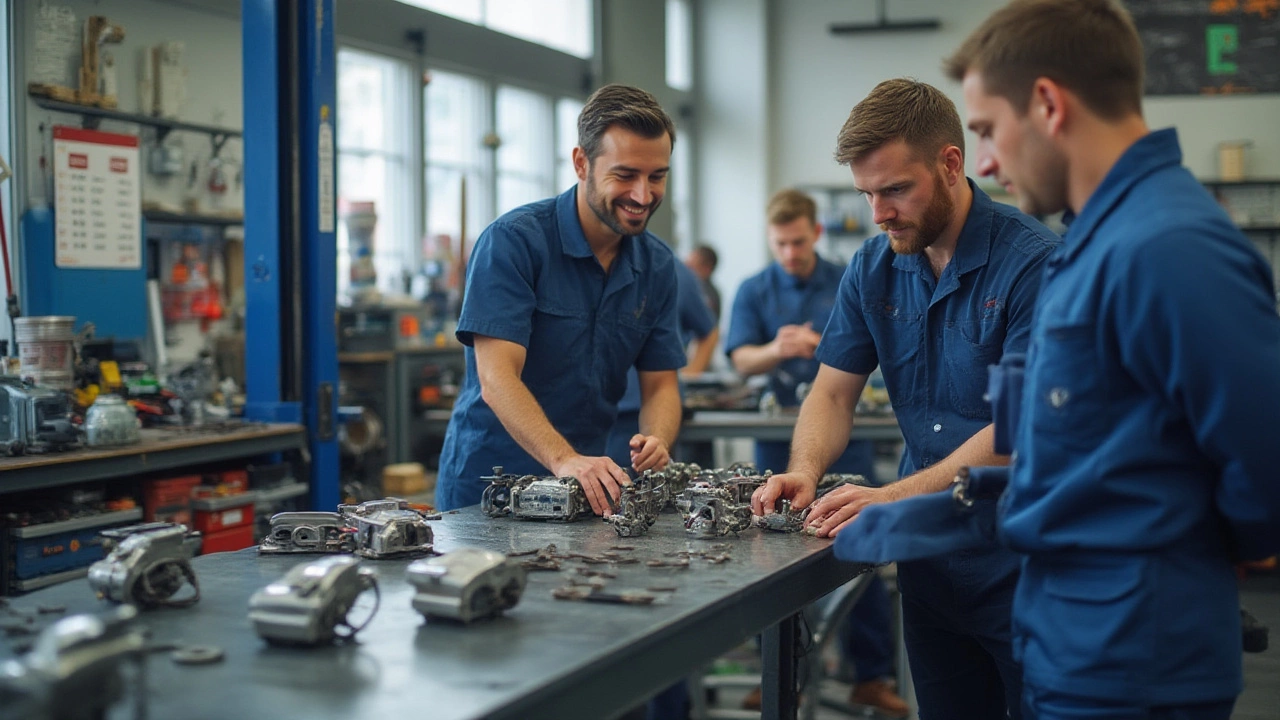You might think a caliper is a super-specific part no one really cares about until their car starts making weird noises. But the moment your brake pedal feels spongy or your mechanic raises an eyebrow, you realise your day just got a bit more expensive. Calipers sit right at the heart of your brake system, literally gripping the spinning parts of your wheels to help you stop safely. But when they go wrong, 'how much is a caliper?' shoots to the top of Google searches across Manchester and beyond. You’re probably not eager to part ways with your hard-earned cash on what looks like just another chunk of metal, but here’s a shocker – there’s more to that price tag than you might expect.
What Exactly Is a Caliper and Why Does It Matter?
Let’s clear up the basics first, because unless you’re knee-deep in spanners every weekend, “caliper” probably sounds as mysterious as “flux capacitor”. In simple terms, a caliper is a clamp-like device that pushes brake pads against your car's brake disc (or rotor) to create friction. That friction slows or stops your car. Lose a working caliper, and you’ve got dodgy stopping distances, uneven braking, or in the worst cases, a car that just doesn’t want to stop at all. That’s not just nervy—it’s illegal and seriously unsafe.
Calipers come in two main types: floating and fixed. Floating calipers are more common and cheaper because they move sideways when you brake. Fixed calipers, found in sportier models, don’t budge—they use pistons on both sides of the disc for even pressure (and much fancier price tags). Add to that quirky details like single-piston or opposed-piston setups, and you’ll see why not all calipers—or their costs—are equal.
One sneaky fact? If one caliper’s failed, its partner may not be far behind. Often, mechanics recommend a pair for front or rear wheels just so your car stops straight. That means double the cost in an instant. There’s also the fun extras—the slide pins hide grime, the rubber boots keep muck out, and don’t get me started on the tiny, pricey pistons inside. Suddenly, this isn’t looking like a one-off, out-of-pocket moment.
How Much Does a Caliper Really Cost in 2025?
The big question—how much are you actually shelling out for a caliper in the UK this year? Well, like just about anything car-related, there’s a range, not a rule. If you’re looking at mass-market cars like a Ford Fiesta or Volkswagen Golf, a single new front caliper typically runs from £50 to £150. Pop into a high street parts shop in Manchester, and you might spot reconditioned ones for under £50, but they usually come with a core charge or need you to hand in your old caliper.
Luxury or performance brands, as usual, bring the drama. A brand-new front caliper for a BMW 3 Series can cross the £200 mark, with fancier variants (hello, AMG or M-Sport) even nudging £400 a pop. Rear calipers can be slightly less, but electric parking brakes now built into them are pushing the price up. For rare or classic cars, expect wild swings: one mate recently paid £350 for an oddball Alfa Romeo caliper, and it was second-hand.
| Car Model | Type | Caliper Cost (2025, UK) |
|---|---|---|
| Ford Fiesta (Front) | New OEM | £75 - £120 |
| VW Golf (Rear) | Reconditioned | £40 - £70 |
| BMW 3 Series (Front) | New OEM | £180 - £250 |
| Mercedes C-Class (Front AMG) | Performance | £300 - £420 |
| Toyota Corolla (Front) | Aftermarket | £55 - £90 |
Need labor? Brace yourself. Most UK garages charge between £60 to £120 for the swap, per caliper. DIY-ers can save here but will need decent tools and the confidence to bleed brakes—get this wrong and your stopping distance could resemble a cruise liner, not a hatchback. Brake fluid, hardware clips, and possible new pads or discs add more cost. A full front-set job (two calipers, fluid, fitting) on a popular car often tops £300. The average cost for a single caliper fitted in 2025? Around £120-£220 for most mainstream UK models.

Why Do Prices Vary So Much?
The first thing that messes with the price is quality—OEM (Original Equipment Manufacturer) calipers match exactly what your car had from the factory, but you’ll pay more for that certainty. Aftermarket brands can be cheaper, sometimes way cheaper, but it’s buyer beware—there’s a reason some bargain calipers come with zero or laughably short warranties. Then there are reconditioned or remanufactured units: these are original calipers rebuilt with shiny new internal parts. They’re usually a sweet spot of affordability and reliability, and plenty of reputable garages offer them with a solid warranty.
It’s not just the make of your car, either. The complexity of your braking system plays a part. Any caliper with built-in electronic gadgets like an electric handbrake or wear sensors can cost double or triple the price of a plain old mechanical part. High-performance or bigger vehicles (like estates or SUVs) often use chunkier calipers with more pistons to handle extra weight. And don’t get me started on imported cars—if the part has to cross borders, shipping and taxes add a lovely premium.
Brand matters too. Names like Brembo and ATE (especially for Germans) cost more because they actually build the calipers for the original car manufacturers. Opt for unbranded “eBay specials” and you might save a few quid now, but you’ll pay tenfold if they seize up in traffic. There’s also the not-so-small issue of colour: you’d be surprised how many folks in 2025 are paying extra just to get red or yellow calipers for looks. It sounds daft, but ask at any Manchester tuning shop and you’ll see lads queuing up for something that matches their alloys.
Tips for Saving Money and Avoiding Caliper Headaches
So, now you know there’s no single answer to the ‘how much is a caliper’ puzzle—it’s all about make, model, and choices. If you’re looking to save some coin, here’s what works. First off, always double-check if it’s actually the caliper at fault—not an old brake hose, a seized slide pin, or dodgy pads. Loads of calipers get binned when the real problem is much cheaper to fix. Some garages in Manchester offer a free brake inspection, and it’s worth a look before dropping money on unneeded parts.
Reconditioned calipers strike a solid balance for most cars. Go through a reputable supplier and check that they offer a proper warranty—12 months is fair as of 2025. You’ll usually need to return your old caliper (the ‘core’), but that helps keep waste down and your pocket healthier. If you’re loyal to DIY, invest in a pressure bleeder kit. It’s a game-changer if you plan to tinker and will make bleeding brakes a less messy, nail-biting job.
Look for bundle deals—some shops offer discounts if you buy the full axle set, or if you pair calipers with pads and discs. You can slice labor costs by waiting for regular servicing (many garages give a better price when swapping calipers alongside discs or pads). Don’t forget to haggle a little, especially if you’re sourcing multiple parts at once. If you’re after pure reliability or have a car you can’t afford to be off the road, pay that bit extra for an original or premium-brand caliper. But if you drive an older hatchback around Manchester, a well-rebuilt unit will do just fine and last for years.
Here’s a handy table with some quick cost-saving tips if you’re facing a caliper swap in 2025:
| Tip | How It Helps |
|---|---|
| Choose Reconditioned | Often 30-50% cheaper, same reliability if sourced well |
| Bundle Parts | Discounts for buying caliper plus pads/discs together |
| DIY Fitment | Save £60-£120 labour per caliper |
| Return Core | Get up to £25 back per caliper returned |
| Shop Around Online | Compare UK suppliers and importers for deals |
Here’s the bottom line: if a mechanic quotes you £400 for a single caliper on a car that isn’t exotic, ask for a parts breakdown and alternatives. If someone offers a new, branded caliper for you at under £30, you might want to run for the hills (or at least triple-check the warranty). For most everyday cars, you’re looking at £120–£220 fitted for a quality caliper from a decent garage, with options to save or upgrade depending on your needs. It’s not the most glamorous way to spend your money, but keeping those calipers fresh is one of those expenses that keeps you, and everyone else, safe out on the road.

